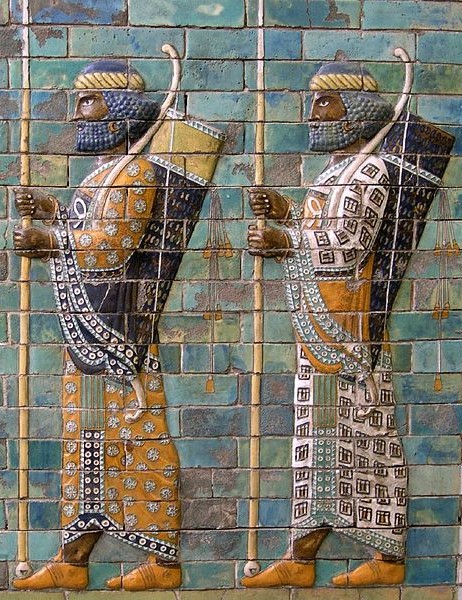 We know the story of the Greco-Persian Wars very well from the Greek side of things, especially from Herodotus whose Histories is all about the conflict. Modern histories have tended to tell the story the same way the Greeks told it—as a triumphant victory of hardy, democratic Greeks over soft, despotic Persians—in large part because we have no Persian version for comparison.
We know the story of the Greco-Persian Wars very well from the Greek side of things, especially from Herodotus whose Histories is all about the conflict. Modern histories have tended to tell the story the same way the Greeks told it—as a triumphant victory of hardy, democratic Greeks over soft, despotic Persians—in large part because we have no Persian version for comparison.
Even though we don’t have a Persian account comparable to Herodotus, however, we do have a hint as to how the wars may have been remembered inside the Persian Empire. This hint comes from a second-hand story reported several centuries after the fact by the Greek rhetorician Dio Chrysostom:
I heard a Mede say that the Persians do not agree at all with the Greeks’ version of events. Instead, he said that Darius sent Datis and Artaphernes against Naxos and Eretria, and that after capturing these cities they returned to the king. A few of their ships—not more than twenty—were blown off course to Attica and the crews had some kind of scuffle with the locals. Later on, Xerxes made war on the Spartans. He defeated them at Thermopylae and slew their king Leonidas. Then he captured the city of Athens, razed it, and enslaved those who did not flee. When this was done, he made the Greeks pay him tribute and returned to Asia.
– Dio Chrysostom, Discourses 11.148-149
(My own translation)
This version of events is not exactly wrong. The basic sequence matches up with our other evidence: in 490 BCE, King Darius sent a campaign against Greece that successfully captured the cities of Naxos and Eretria, but was defeated at Marathon and failed to take Athens. Ten years later, Darius’ son and successor Xerxes led an invasion of Greece which defeated a small Spartan-led holding force at Thermopylae and killed the Spartan king Leonidas, then captured and burned Athens. Numerous Greek cities became tribute-paying subjects of Persia rather than fight Xerxes’ force.
The only real differences between this Persian account and the Greek legend are the ways it emphasizes successes and downplays defeats. The battle of Marathon becomes a mere fistfight between a few stragglers and some local color. The capture and destruction of Athens is celebrated, even though the aim of the campaign was to absorb Athens into the empire, not just burn it and leave. The Persian kings could rightly say that they had made a significant show of force against the Greeks, while leaving out the fact that they hadn’t quite achieved what they set out to. As spin goes, this isn’t spun too far.
We know the Greek stories about the wars so well that we can easily see the places where the Persians seem to have burnished their memories, but that observation should also make us question the Greek stories themselves. If Persians could tweak their story to make themselves look better after the fact, what’s to say that the Greeks didn’t do the same? If we had a fuller Persian account of the conflicts in Greece, we might well find plenty of places where Herodotus and his fellow Greeks had played up their own successes and swept some embarrassing missteps under the historical rug.
Image: A Persian “Immortal,” selection from photograph by Mohammed Shamma via Flickr (currently Pergamon Museum, Berlin; 5th c. BCE; glazed brick) CC BY 2.0
History for Writers looks at how history can be a fiction writer’s most useful tool. From worldbuilding to dialogue, history helps you write. Check out the introduction to History for Writers here.